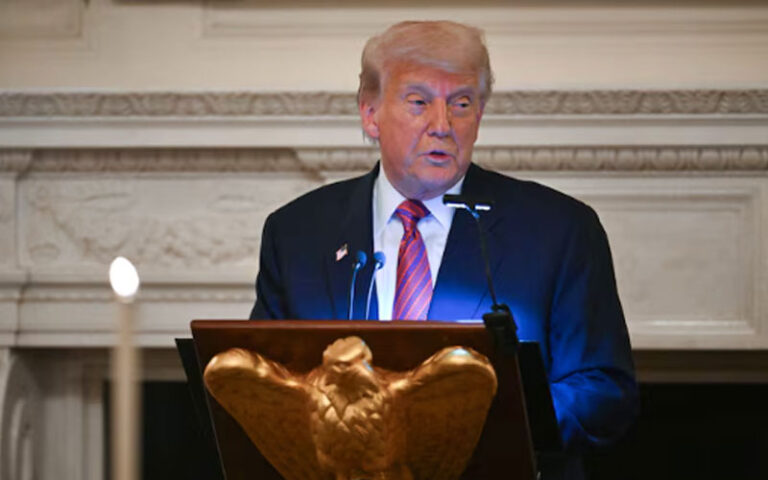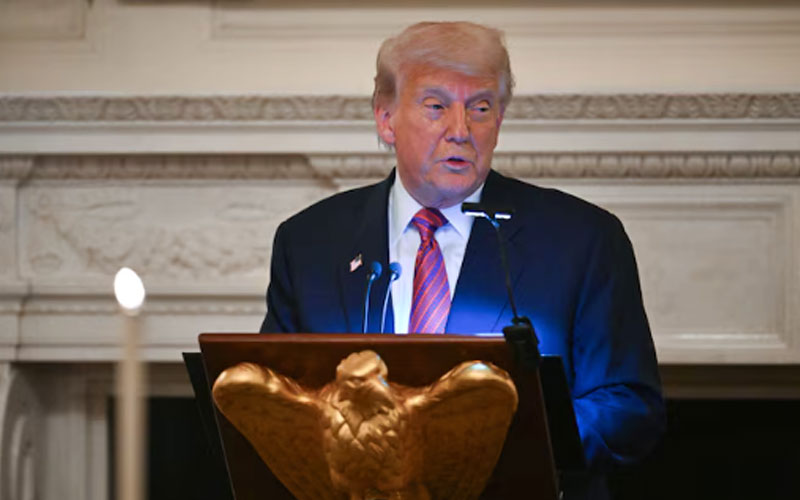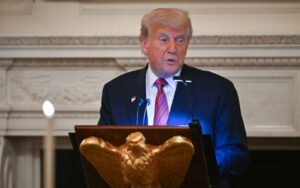Washington, D.C. — In a surprising shift in tone, President Donald Trump has called for the release of grand jury testimony related to Jeffrey Epstein, stating it should be “subject to Court approval.” The announcement came Thursday night via a social media post, marking a rare moment where Trump appeared to acknowledge the judiciary’s constitutional role — a stark contrast to his months-long pattern of attacking federal judges.
“For months, President Trump has cast federal judges as politically biased opponents of his administration,” said legal analyst Judith Resnik, a Yale Law professor. “But now, he seems to be endorsing judicial oversight — at least when it comes to the Epstein matter.”
The president’s statement followed a report by The Wall Street Journal revealing that Trump once sent Epstein a birthday greeting in 2003 that included a sexually suggestive sketch, warm wishes, and a reference to undisclosed shared secrets. The New York Times has not independently verified that report.
Trump Requests Epstein Grand Jury Records Amid Flip on Judicial Authority
“I have asked Attorney General Pam Bondi to produce any and all pertinent Grand Jury testimony, subject to Court approval,” Trump posted online. This apparent deference to judicial discretion contrasts with his previous statements, where he labeled judges who opposed his immigration and budgetary policies as “U.S.A.-hating” and unfit for the bench — even suggesting their impeachment.
Trump’s administration has routinely argued for expansive executive powers, particularly in immigration enforcement and federal funding decisions. At times, the president has gone so far as to question the fundamental legitimacy of the judiciary as a check on presidential authority, writing online: “He who saves his Country does not violate any Law.”
Yet in the Epstein case, Trump is now leaning on the same legal process he once scorned. Grand jury proceedings are, by law, secret and tightly regulated. Legal experts like Benjamin Wittes, editor-in-chief of Lawfare, have emphasized that the decision to release such material lies solely with the court — not the attorney general or the president.
“It is illegal to release this material without court authorization,” Wittes wrote. “This is not a discretionary move by the administration.”
Historically, evidence presented before grand juries includes sensitive or unproven claims, and confidentiality is designed to protect both witnesses and those under investigation, especially if no formal charges are brought.
Critics say the president’s recent posture is inconsistent with his broader approach to judicial authority. “This is classic flip-flopping on the role of judges,” Resnik added. “You can’t selectively support the rule of law when it aligns with your political needs.”
When asked to respond to perceived contradictions, White House spokesperson Abigail Jackson dismissed the analysis. “The New York Times is comparing apples to oranges to fuel their narrative of the day,” she said in an emailed statement. “The president’s criticisms of rogue district court judges are well warranted.”
Trump has previously characterized judges who rule against him as “radical left lunatics” or “far-left activists,” escalating tensions between the executive and judicial branches. Legal watchdogs have raised concerns that such rhetoric may incite threats or undermine the judiciary’s legitimacy.
In one troubling allegation, a Justice Department whistleblower claimed that a senior Trump official once suggested ignoring unfavorable court orders. That official, Emil Bove III, has since been nominated by Trump to a federal appellate court. Bove denied ever making such a statement, and the Justice Department rejected the accusation.
Despite these controversies, the president’s latest move appears to represent a rare acknowledgment of legal norms — albeit one potentially driven by political calculus amid renewed public scrutiny of his past relationship with Epstein.

















